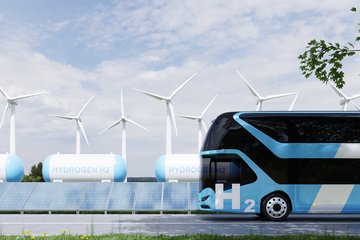All genres
101.
Talk
Atom Probe Tomography: Basics, data analysis and application to the analysis of phase transformations. Department of Materials Engineering house seminar, KU Leuven, Leuven, Belgium (2014)
102.
Talk
Parameter finding for and accuracy of the Maximum Separation algorithm assessed by Atom Probe simulations. 2nd European APT Workshop at ETH Zürich, Zürich, Switzerland (2013)
103.
Talk
Atom Probe Tomography: Basics, data analysis and application to the analysis of advanced steels. Symposium "Frontiers in Steelmaking and Steel Design", INM, Saarbrücken, Germany (2013)
104.
Talk
Revisiting the recrystallization kinetics of pure Cu: A combined experimental and computational study. Euromat 2013, Sevilla, Spain (2013)
105.
Talk
Deformation-induced intermixing in a Cu-V-nanolaminate studied by APT. Euromat 2013, Sevilla, Spain (2013)
106.
Talk
Atom Probe Tomography: Basics, data analysis and application to the analysis of phase transformations. Kolloquium at Max-Planck-Institute for Intelligent Systems, Stuttgart, Germany (2013)
107.
Poster
Intrinsic Heat Treatment in Al–Sc Alloys During Laser Metal Deposition - Driving Factors, Kinetics and Effect of Impurities. Alloys for Additive Manufacturing Symposium 2019 (AAMS2019), Chalmers University of Technology, Gothenburg, Sweden (2019)
108.
Poster
Mechanisms Contributing to Solidification Cracking during laser powder bed fusion of Inconel-738LC. Alloys for Additive Manufacturing Symposium 2019 (AAMS2019), Chalmers University of Technology, Gothenburg, Sweden (2019)
109.
Poster
Microstructure and deformation behavior of particle-strengthened CoCrFeNi-based alloys. SPP Meeting , Karlsruhe, Germany (2019)
110.
Poster
Preventing the Coarsening of Al3Sc Precipitates by the Formation of a Zr-rich Shell During Laser Metal Deposition. Alloys for Additive Manufacturing Symposium, Sheffield, UK (2018)
111.
Poster
Innovative Metallurgical Design Strategies Tailored to Additive Manufacturing. MRS spring meeting, Phoenix, AZ, USA (2018)
112.
Poster
Precipitation kinetics during non-linear heat treatment in Laser Additive Manufacturing. International Conference on Advanced Materials and Processes, ‘ADMAT 2017’ SkyMat, Thiruvananthapuram, India (2017)
113.
Poster
Precipitation kinetics during non-linear heat treatment in Laser Additive Manufacturing (LAM). Alloys for Additive Manufacturing Symposium, Zürich, Switzerland (2017)
114.
Poster
Designing a novel Fe–Ni–Al Maraging steel for Laser Metal Deposition exploiting Intrinsic Heat Treatment. EUROMAT 2017 Conference, Thessaloniki, Greece (2017)
115.
Poster
Designing a novel Fe–Ni–Al Maraging steel optimised for Laser Metal Deposition. Alloys for Additive Manufacturing Symposium, Zürich, Switzerland (2017)
116.
Teaching
Microstructural Aspects of Additive Manufacturing. Lecture: Workshop “Microstructural Aspects of Additive Manufacturing”, Indian Institute of Technology Roorkee, 3,5h of lectures, Roorkee, India, December 02, 2017
117.
Thesis - Master
Measurement of solidification characteristics of steel during Selective Laser Melting using high-speed pyrometry. Master, RWTH Aachen, Aachen, Germany (2018)
118.
Thesis - Master
Recommissioning of a metal powder atomisation system and investigation of its suitability to produce powders for additive Manufacturing processes. Master, Ruhr-Universität Bochum, Bochum, Germany (2017)
119.
Thesis - Master
Effect of post-heat treatment on the microstructure and mechanical properties of SLM-produced IN738LC. Master, RWTH Aachen, Aachen, Germany (2017)
120.
Opinion
Additive Fertigung – Entwicklungen, Möglichkeiten und Herausforderungen. (2020), 120 pp.











